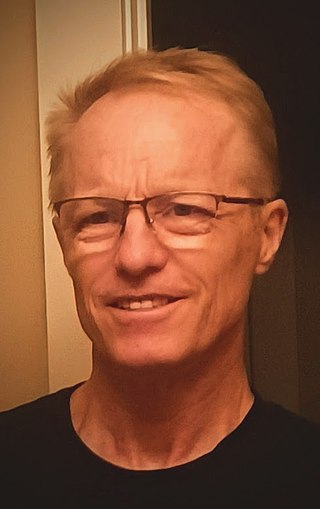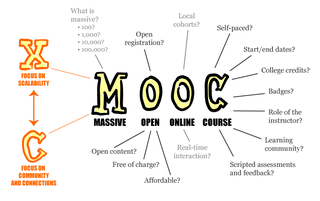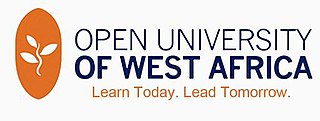History
Kepler launched in 2004, operating as Orphans of Rwanda and later became Generation Rwanda in 2010. Kepler has been supporting talented and economically vulnerable Rwandan students to have access to a quality higher education. Kepler has been reinvented the higher education scene by offering young people pathways to access gainful employment, and create positive change within their communities.
In 2013, Kepler partnered with the Southern New Hampshire University (SNHU) [4] to scale their impact through their "College for America" program in two location: the Kepler Kigali campus and the Kiziba Refugee Camp. This partnership combined Southern New Hampshire's University's online degree with in-person seminars, job readiness training and coaching. In 2015 and 2016, Kepler expanded its reach through the recruitment of Rwandan refugees, which later expanded to students from the Democratic Republic of Congo, Kenya and Uganda. Kepler opened up a second site at the UNHCR's Kiziba Refugee Camp in Rwanda's Western Province with the goal of providing access to higher education to refugees. [5]
In 2018, Kepler launched the Iteme, [6] a preparatory program preparing secondary school graduates preparing to pursue higher education, with a focus placed on English.

Kigali is the capital and largest city of Rwanda. It is near the nation's geographic centre in a region of rolling hills, with a series of valleys and ridges joined by steep slopes. As a primate city, Kigali is a relatively new city. It has been Rwanda's economic, cultural, and transport hub since it was founded as an administrative outpost in 1907, and became the capital of the country at independence in 1962, shifting focus away from Huye.

ITT Technical Institute was a private for-profit technical institute with its headquarters in Carmel, Indiana and many campuses throughout the United States. Founded in 1969 and growing to 130 campuses in 38 states of the United States, ITT Tech was one of the largest for-profit educators in the US before it closed in 2016.

Daniel Webster College (DWC) was a private college in Nashua, New Hampshire. It operated from 1965 through 2017 and had a strong aeronautics focus during much of its history. It was a nonprofit college until 2009, when ITT Educational Services, Inc. bought it and converted it to a for-profit model. ITT declared bankruptcy in September 2016. It was operated through the 2016–17 academic year by Southern New Hampshire University, after which the college was closed.

Education in Rwanda has undergone considerable changes throughout Rwanda's recent history, and has faced major disruptions due to periods of conflict. Education was divided by gender whereby women and men had a different education relevant to their responsibilities in day-to-day life. Women were mostly taught housekeeping while men were mainly taught how to hunt, raise animals, and fish. This is because Rwanda was a community-based society where every member had a specific contribution to the overall development of the community. Older family members like grandparents usually took on the role of educators.

Southern New Hampshire University (SNHU) is a private university between Manchester and Hooksett, New Hampshire. The university is accredited by the New England Commission of Higher Education, along with national accreditation for some hospitality, health, education and business degrees. SNHU is one of the fastest-growing universities nationwide with 135,000 online students and 3,000 on campus.

Christopher "Chris" Hedrick is an entrepreneur and expert in learning, global health, international development, and technology.

Mount Kenya University (MKU) is a private, multi-campus university in the municipal town of Thika, Kenya. It was established by Prof. Simon N. Gicharu and has become one of the most significant private universities in Kenya. MKU has a student population of 52,000 as of September 2015. MKU is chartered and ISO 9001:2015 certified.

OmniPeace was founded in 2007 by Mary Fanaro, a Los Angeles–based entrepreneur. The foundation is dedicated on building music schools in Rwanda.

Paul Kim is currently a Korean-American Chief Technology Officer and Associate Dean at the Stanford Graduate School of Education and has held this position since 2001.

A massive open online course or an open online course is an online course aimed at unlimited participation and open access via the Web. In addition to traditional course materials, such as filmed lectures, readings, and problem sets, many MOOCs provide interactive courses with user forums or social media discussions to support community interactions among students, professors, and teaching assistants (TAs), as well as immediate feedback to quick quizzes and assignments. MOOCs are a widely researched development in distance education, first introduced in 2008, that emerged as a popular mode of learning in 2012, a year called the "Year of the MOOC".

edX is a US for-profit online education platform owned by 2U since 2021. The platform's main focus is to manage a variety of offerings, including elite brand bootcamps.

Open University of West Africa (OUWA) was founded in Ghana in November 2011 by John Roberts and Patrick Steele. With the goal to break the poverty cycle in West Africa through online education, John Roberts and his co-founder were inspired by a simple but contradictory observation: at the moment, higher education penetration in Africa was very low, many of the best universities around the world were beginning to put their courses online through platforms like Coursera, edX, Udacity etc.
Kigali Independent University is a Rwandan institution of higher learning founded on 15 March 1996. A private university, ULK is located in Kigali. The university was founded by Rwigamba Balinda, who remains its president as of 2023.
University of Rwanda is a public collegiate, multi campus university based in Kigali, Rwanda. Formed in 2013 through the merger of previously independent education institutions, the University of Rwanda is the largest education institution in Rwanda. The University of Rwanda is ranked number one in the country by the Higher Education Council, an organ established by the Government of Rwanda.
The Adventist University of Central Africa (AUCA) also called in French: Universite Adventiste d'Afrique Central is a Seventh-day Adventist institution of higher learning near two campuses in Kigali, Rwanda. It is a part of the Seventh-day Adventist education system, the world's second largest Christian school system.

African Leadership University (ALU) is a network of tertiary institutions operating in Mauritius and Rwanda, offering bachelor's degree programs.
University of Global Health Equity (UGHE) is a health sciences university in Rwanda. An initiative of Partners In Health, UGHE is a private, not-for-profit, accredited institution.
Georgia Tech Online Master of Science in Computer Science (OMSCS) is a Master of Science degree offered by the College of Computing at Georgia Tech. The program was launched in 2014 in partnership with Udacity and AT&T and delivered through the massive open online course (MOOC) format. Georgia Tech has received attention for offering an online master's degree program for under $7,000 that gives students from all over the world the opportunity to enroll in a top 10-ranked computer science program. The program has been recognized by the University Professional and Continuing Education Association, Fast Company, and the Reimagine Education Awards for excellence and innovation.

Gamariel Mbonimana is a Rwandan politician who served as a member of the Chamber of Deputies in the Parliament of Rwanda from 2018 to 2022. He is a member of Liberal Party political party in Rwanda. Formerly he served as a full time senior lecturer at University of Kigali.













